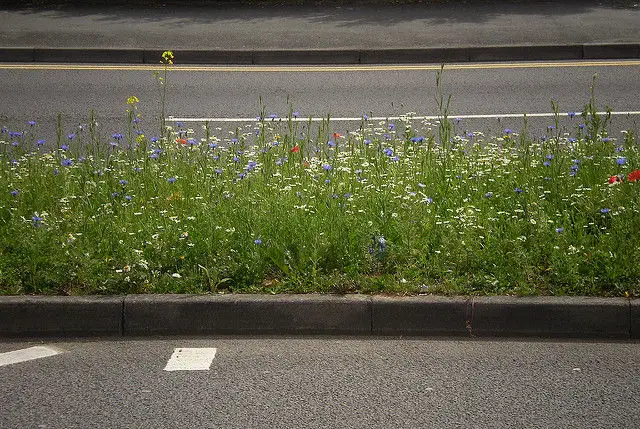This latest in from Leader of the group of Isle of Wight Conservative councillors, Dave Stewart, Ed
Caretaker council leader Dave Stewart has said the council should consider less cutting of grass verges this spring to promote wild flowers and insects, and make the Island more beautiful.
The new green initiative is the first part of an action plan he wants the council to implement in consultation with conservation and tourism bodies to help wildlife, make the Island greener and more desirable to visitors.
It will also support the work already being undertaken by the Highways Agency and the ANOB who are looking at the management of verges nationally. It will also help to protect habitats from unwanted and non-native injurious plants.
New cutting timetable
The new cutting timetable and approach will join up with the Island Council talking to parish councils, national and local conservation bodies, agriculture and the tourism industry to look at undertaking a ‘Nature and Buildings Heritage Audit’ designed to identify what amenities can be better recognised, used and safeguarded across the Island, again to preserve the environment but also boost visitor numbers.
The move will also save money as the verges are cut less throughout the major growing season from May to September and would be an initiative that would be implemented if the Conservatives win the forthcoming local elections.
Replace lost wildflower meadows
Dave said the new regime would be designed to help replace wildflower meadows, 90% of which have been lost across England, and so encourage bees and other insects.
But he stressed the idea would not compromise road safety as areas near junctions or blind bends would still be cut regularly to ensure visibility and safety for walkers. It will also need to be mindful of the visual impact in the rural community.
“This island is a beautiful place but we do not always look after it as best we can so this new grass verge cutting regime would be a small step in making sure we do better as an authority to protect our wildlife and make the Isle of Wight even more attractive to visitors,” said Dave.
“It is a small step and one that will actually save some money, but we cannot do more without the help of conservation bodies like the Hampshire and Isle of Wight Wildlife Trust, English Heritage, the ANOB bodies, parish councils and farmers to make sure initiatives like this work and work well. With a raft of local heritage and culture centres it is time we all have the opportunity to come together to seek solutions and raise awareness of bids and initiatives already underway with our heritage landscape.
“We are custodians of this island and we must protect it for our future generations but also make it the best possible place for people to visit. This joined-up approach, working together for the good of the Island, will help wildlife and boost the tourist economy, so there is a win for everyone.”
Audit of attractions and assets
Dave explained the council needs to know what attractions or assets there are out there but are relatively unknown, what can be done to make the best of them and what can be done to protect them. He said he will be writing to stakeholders across the Island asking for their input into the audit.
Dave also said he will ask council staff to look at whether the West Wight cycle path can be completed and what resources it will require to do so.
He said,
“We have been very successful in bidding for funding such as the recent £1.3 million for Local Sustainable Transport Funding – apparently only one of four local authorities in the country to achieve this support grant.
“The Island is a great place to cycle and more needs to be done to make more paths available. I will be asking council officers to report back to me on how that can be achieved.”





